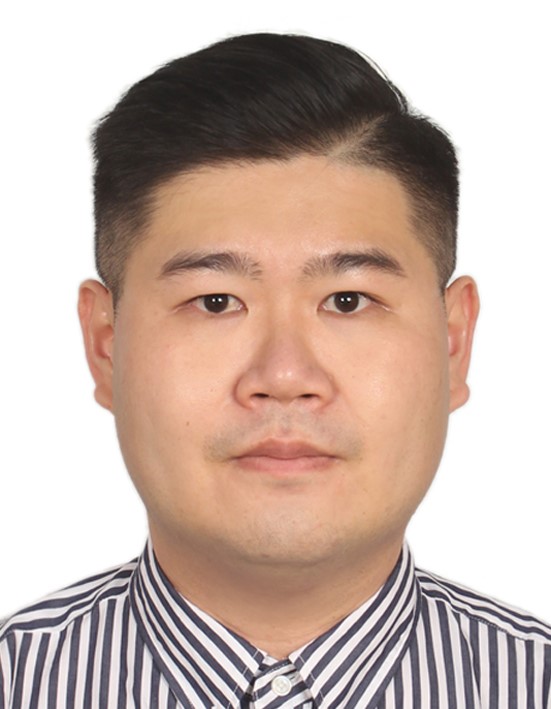The booming development of emerging technologies has led to the extensive application of digital technologies in the field of teaching practice, such as MOOCs (Masters of Orientation Courses), AR/VR/MR teaching applications, digital learning, and digital game learning, which have given rise to many new and diversified educational patterns, and this has made the application of educational technologies more and more valued. With the rapid development and integration of technology, the application of technology will enter the next milestone, which has led to 2021 being called the "Year of the Metaverse". The concept of the Metaverse is believed to have a far-reaching impact on contemporary teaching methods, and it shows that the application of new technology in the field of education has a high value, which has made it one of the hotly debated research topics in recent years. In addition, new technologies not only bring a new look to innovative teaching and learning, but also enable the development of teaching activities that are different from those of the past, as well as the possibility of changing learners' behaviours and expressions of emotions, helping learners to improve the effectiveness of their learning. Therefore, this workshop will focus on this theme and provide an opportunity for the participants to share their teaching practices and research experiences with each other, while the workshop chairperson will give a 30-minute presentation on the topic.
In addition, since the outbreak of COVID-19 in 2020, schools around the world have closed their campuses and switched to distance learning due to the need to prevent epidemics. This limitation of physical teaching has also prompted the use of emerging technologies and digital learning to be of concern to education scholars and frontline teachers at home and abroad. Although the epidemic is over, there is still much to be learnt from the contributions, dilemmas and implications of education technology on teaching practice during the epidemic and the post-epidemic era. Therefore, this workshop welcomes contributions from those who are interested in this topic.
I. Research on Educational Methods and Environments in the Metaverse
II. Research on Innovative Teaching and Learning Methods
III. Research on Digital (Online) Learning in the Post-COVID-19 Epidemic Era
IV. Research on the application of new technologies in different areas of learning.
Keywords: AR/VR/MR, COVID-19, e-learning, game-based learning, innovative teaching, Metaverse
Workshop Language: Chinese, English
Workshop Chair:
Professor Jon-Chao Hong

E-mail: hongjc@ntnu.edu.tw
Education: Ph.D., University of Illinois, Champaign-Urbana, U.S.A.
Current position: Research Professor, Institute for Research Excellence in Learning Sciences, National Taiwan Normal University
Professor Jon-Chao Hong is currently a Research professor at National Taiwan Normal University, and has been selected by Stanford University as one of the top 2% of scientists in the world in 2022 and 2023. His Digital Game-based Learning Laboratory has developed more than 20 educational game apps and 13 educational VRs based on game learning theories, with the aim of enhancing students' learning motivation to learn domain knowledge and thinking skills. In line those App and VR developments, he has conducted several studies for journal publication. He also organizes a number of Maker competitions every year, such as the PowerTech Competition, which is divided into the Miniature models-wooden Robot Competition and is conducted in the mode of "Making in the morning, competing in the afternoon" to avoid adults’ intervention to trains students to think independently and apply STEAM skills. Through the competition, it cultivates students' attitude towards scientific creativity and understanding of STEAM domain knowledge, stimulates students' creative thinking towards the design of organisms, and at the same time, cultivates their attitude toward continue improvement and the spirit of teamwork. In addition, he currently holds more than 70 patents for his inventions. As for the academic achievement, he has published papers in international journals more than 70 papers in SSCI journals in the past three years.
Workshop Co-Chairman:
Dr. Jian-Hong Ye

E-mail: jianhong.ye@bnu.edu.cn
Education: PhD, Department of Industrial Education, National Taiwan Normal University
Current position: Lecturer, Faculty of Education, Beijing Normal University
Dr. Jian-Hong Ye graduated from the Department of Industrial Education at National Taiwan Normal University. He is currently a lecturer in the Faculty of Education at Beijing Normal University, a distinguished expert at the National Institute of Vocational Education at Beijing Normal University, and a visiting professor at Ningxia Polytechnic. Dr. Ye is also an honorary member of the Phi Tau Phi Scholastic Honor Society (Taiwan) and an outstanding alumnus of the Department of Fashion Design at Tainan University of Technology. He has presided over one provincial and ministerial-level project, three university-level projects, and participated in many provincial-level projects and more than 20 research projects in Taiwan. He has published more than 50 papers in SSCI, SCI, CSSCI and TSSCI journals, including one highly cited paper, and has served as guest editor-in-chief and peer reviewer for several SSCI, SCI and SCOPUS journals.
Workshop Agenda Committee
Dr. Wang Li, Hainan Vocational University of Science and Technology
Dr. Weiguaju Nong, Guangxi University of Foreign Languages
Dr. Liying Nong, Hezhou University
Dr. Yu Feng Wu, Ming Chi University of Technology
Dr. Yuting Cui, Beijing Institute of Education
Dr. Chi-Rui Tsai, National Taiwan Normal University
Dr. Kaixin Tai, Soochow University
Paper Format
Papers should be written in simplified Chinese, traditional Chinese or English, and should be a maximum of eight pages for long papers and four pages for short papers. Please provide the title, abstract and keywords in both Chinese and English.
Papers with more than 15% comparative repetition or more than 20 consecutive comparative repetitions will not be accepted.
※Papers that do not meet the formatting requirements of the conference may not be included in the conference proceedings.
Submission of Papers
Please submit your paper in the format required by the GCCCE2024 conference by e-mailing a pdf file and a word file to the " Facing Metaverse on Applying New Technologies in Education " Generation at antilgccce2024@gmail.com.
Important Dates
Deadline for submission of papers: 25 March, 2024
Notification of review result: 08 April, 2024
Deadline for Finalisation of paper: 22 April, 2024 (please submit the copyright of the conference version at the same time)
Registration of Workshop Papers: 30 April, 2024
Workshop: 01-05 June 2024
"Contact Information for " Facing Metaverse on Applying New Technologies in Education"
E-mail: antilgccce2024@gmail.com
Name: Dr Jian-Hong Ye

